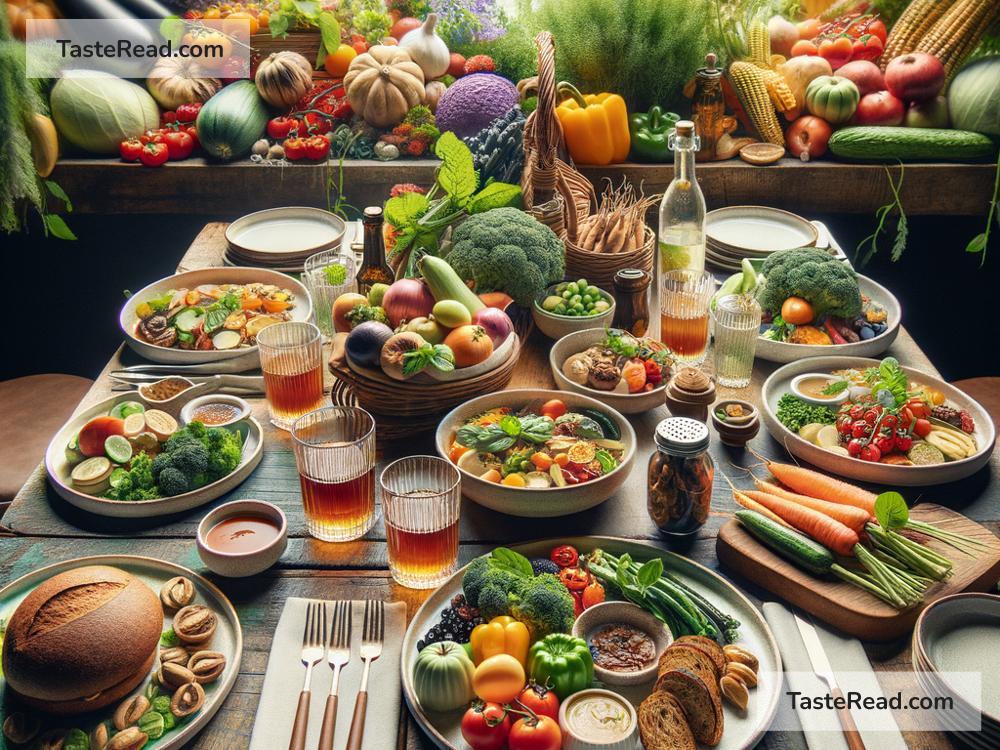Exploring Farm-to-Table Dining in Vancouver, Canada
In the bustling city of Vancouver, Canada, there’s a food movement that’s catching everyone’s attention – farm-to-table dining. This isn’t just about eating; it’s about connecting with the food on your plate, understanding where it comes from, and appreciating the journey from the farm to your table. Vancouver’s rich landscapes and commitment to sustainability make it a prime spot for exploring this dining adventure. So, let’s dive in and explore what farm-to-table dining in Vancouver has to offer.
What is Farm-to-Table Dining?
Simply put, farm-to-table dining is all about freshness and locality. Restaurants and cafes working within this concept source their ingredients directly from local farms, ensuring that the food is not only fresh but also supports local farmers and reduces the environmental impact caused by long-distance food transportation. This approach fosters a closer connection between diners, chefs, and farmers, making eating out a more intimate and meaningful experience.
Why Vancouver?
Vancouver’s unique geographical location, bordered by ocean and fertile valleys, provides an abundance of fresh seafood, vegetables, fruits, and meats. The city’s culinary scene has embraced these resources, creating a vibrant farm-to-table culture. Vancouverites care deeply about sustainability and eating healthy, which further fuels the demand for restaurants that offer locally sourced dishes.
Farm-to-Table Restaurants You Can’t Miss
-
Fable Kitchen – True to its name, Fable Kitchen turns the traditional dining tale into an exceptional experience. Chef Trevor Bird champions the farm-to-table ethos, emphasizing dishes that tell a story of locality and seasonality. Their menu changes with the seasons, ensuring a fresh and exciting dining experience each time you visit.
-
Forage – At Forage, the relationship between the diner and the local land is celebrated. Chef Chris Whittaker’s menu is a dedication to sustainable culinary practices, showcasing the best of BC’s local fisheries, farms, and vineyards. The cozy atmosphere makes it the perfect spot to savor the flavors of Vancouver.
-
The Acorn – A haven for vegetarians, The Acorn takes vegetable-based cuisine to a whole new level. Praised for its innovative dishes, this restaurant demonstrates how farm-to-table dining can be both sustainable and delicious, without relying on meat. Don’t miss their artfully prepared plates – they’re as beautiful as they are tasty.
Visiting the Farms
For those who want to take the farm-to-table experience a step further, Vancouver offers opportunities to visit the very farms where the food comes from. Many farms around the city open their doors to visitors, allowing you to see firsthand where your food is grown and meet the people behind the produce.
-
Southlands Heritage Farm – Located within Vancouver, Southlands offers a unique urban farm experience. You can tour the farm, participate in workshops, and even pick your own berries during the summer months.
-
UBC Farm – Part of the University of British Columbia, the UBC Farm is a research facility and local food hub. They host markets where you can buy fresh produce directly from the source, and also offer guided tours.
The Impact of Farm-to-Table Dining
Choosing a farm-to-table restaurant does more than promise a delicious meal; it supports local farmers, reduces environmental impact, and promotes healthier eating habits. By valuing the local ecosystem and economy, this movement makes dining a tool for positive change.
Conclusion
Exploring farm-to-table dining in Vancouver is more than just a culinary journey; it’s an adventure into understanding and appreciating the local environment and its bountiful produce. Vancouver’s commitment to sustainability and the abundance of local farms make it an ideal place for those looking to savor dishes that are good for both the palate and the planet. Whether you’re a local or a visitor, embracing the farm-to-table dining experience in Vancouver is a must for anyone passionate about food, community, and sustainability.


